Musical Rings With Controversy
Adelle Remke in rehearsal for Thoroughly Modern Millie.
November 1, 2019
When the Highland musical finally hits the stage on Nov. 7, the hum of voices will die, the lights will dim, and the curtains will part, leaving the stage open to the audience’s hungry eyes as one of the most talked about performances Highland has ever done is about to begin.
And controversy will walk out and greet the audience.
This year’s musical, Thoroughly Modern Millie, is full of jazz and flappers and tap-dancing, but is also filled with sensitive content on Chinese stereotypes and human trafficking.
In the weeks leading up to the show, students and adults have shown concern about the play’s suitability for high school audiences, while those defending the play believe it provides an opportunity to learn about complex issues that persisted during the 1920s’.
Concerned individuals talked with the administration and the director, some defaced play posters in hallways, and a few members of the production opted to drop from the play and leave the class altogether.
It seems the drama surrounding the play is as thick as the drama in it.
The plot follows protagonist Millie Dillmount from rural Kansas to busy New York in search of a job and marriage to a wealthy boss. Trouble starts when her wealthy employer has no interest in her and she’s falling in love with a penniless man. Controversy enters the stage with Millie’s hotel owner, Mrs. Meers, and her two henchmen, who are brothers.
Mrs. Meers is a white woman disguising herself as Chinese who works for a white slavery ring in Hong Kong, taking and selling girls from the hotel. The brothers help her kidnap to earn money to send to their mother in China. This villain nearly traffics Millie’s friend, but she is stopped by Millie.
In past shows, Mrs. Meers has been yellowfaced – a grim practice used by white actors when portraying East-Asian characters. Everything from using yellow face paint to fake black wigs to taping eyes back has been used in the past. Highland is not participating in these practices, but the play carries this historical stigma. In the film version, the henchmen-brothers were credited as “Oriental #1,” and “Oriental #2,” which is a racially insensitive term. For the musical, they were given made-up, Chinese-sounding names.
The big debate is not whether this content is racist or not – it’s whether this content belongs in a high school auditorium and if the issues are being portrayed in a way that is helping or hurting the crowds’ ability to navigate through racially and culturally charged situations.
Alexie Baugh, Highland’s musical director and theatre teacher, has acknowledged the discomfort with content and made changes to the play, but her changes are limited because of copyright laws.
“Changing another person’s piece of artwork is a rather sensitive issue,” Baugh said. “There are legal repercussions if I take someone else’s piece of art and change it without permission.I can get sued, the school can get sued, the district can be sued.”
Some legal changes have been made. There’s no yellowface or broken English, and there are no fake Chinese-accents or over-the-top Chinese outfits. Baugh said she’s trying to stay away from anything that might feel touristy or cartoonish, which means not using any outlandish costumes, for example. Mrs. Meers has been changed from pretending to be Chinese to pretending to be an old woman.
But the ideas of racism are still present, as they are critical to understand the play, Baugh said.
“The requests we’ve asked for is changing in wording that we felt was demeaning or demoralizing…I’ve either asked for those words to just be removed from the line completely or for them to be changed into something that the actors and I had discussed and felt like was honest and fair and appropriate,” Baugh said.
Beyond the controversy, she sees Millie finding herself and other characters chasing their dreams.
“[The Chinese brothers] also go through their own arc of deciding. ‘What do we really believe in?’ and ‘who are we really?’ and ‘how do we live our life in this society that is also limiting them in many ways?’” Baugh said. “That’s what I think the story is about: as human beings, how do we live who we are despite limitations and expectations of other people?” However, others don’t think changes can overcome the underlying messages, as illustrated by protests that have occurred nationwide.
Students and members of the communities have protested outside high schools and shows throughout New York, Massachusetts, and Pennsylvania. From January of 2014 to April 2019, schools either cancelled shows, revised scripts, issued apologies from officials, or banned the piece from being performed again. In New York, a cultural proficiency program was added to a district.
Protests outside of a New York high school had signs saying, “racism is not entertainment.” The same words were at Highland, scrawled across musical-advertising posters until they got taken down. Investigations have been started to find the vandalizing perpetrator.
For Hayden Bracken, who left his dancing ensemble role, along with three other students, this graffiti was the catalyst of the pushback against the play.
“That told me that it wasn’t just people in the cast who were uncomfortable anymore, because the cast would be far too scared to say anything, because everybody’s scared of getting on the director’s bad side, because if you criticize her then you end up like me,” Bracken said.
After seeing the marred musical advertisements, he said that he and a few of his friends were talking about it and got pulled aside by Baugh during rehearsal. Baugh said that she was approached by another teacher and informed of the students’ frustration with the show, so she pulled the students aside to see if they wanted to be in it.
“She gave us a quote-unquote choice, between staying or leaving that we had to make in six hours,” he said. “It was basically leave the show and the class or stay in the show and get berated by people constantly.”
Bracken, along with two others who left, now has an independent study in place of theatre.
Baugh acknowledges giving the students a choice, believing students uninterested in doing the play would need replacements as soon as possible. A meeting was held to discuss the musical’s issues. It was attended by Highland principal Chris Jenson. Baugh was asked by the students to not attend so the students could speak freely.
Baugh says that students who were concerned with content were able to express concerns and that some who are uncomfortable are still in the production. However, Bracken said anyone who didn’t like the play wasn’t allowed in. He said that he heard everyone seemed comfortable and on the same page, which he strongly disagrees with.
“Basically everyone [in the cast] except four people [later changed to three] have told me that they feel extremely uncomfortable with the show but are too scared to say anything because they’re scared of getting blacklisted in the future…They want to be able to get roles,” Bracken said.
Mariana Lindsay, an ensemble tap-dancer for the musical, believes the current modifications are good. She likes the opportunity to broaden her performance skills, and she sees the brothers as deep characters instead of figures of racist slapstick humor.
“The content itself is questionable, but how we’re portraying it isn’t,” Lindsay said.
She talked about changes made to costuming, the dialect coach for Mandarin and Cantonese, and changes in the overall approach to be very careful to avoid being racist.
Melina Sasaki-Uemura, however, doesn’t think the changes are enough. She’s one of the very few Asian-Americans in the production who worries about the impression it will make on people, especially children.
“I’m really concerned that they’re going to show this to elementary school kids, because elementary school kids who don’t know better will see it and see, ‘this is what they are,’ or make fun of them, which is not how I’d like them to learn,” Sasaki-Uemura said. “The racism is definitely used as laughs…the human trafficking, I just feel like it’s not taken seriously at all.”
Before most of the controversy escalated, Highland history teacher Kyle Bracken put together a presentation for cast members, upon Baugh’s request. It covered Asian representation in U.S. media over the past 120 years. Mr. Bracken is all about using this play to right past wrongs.
“I’m hoping that people will use it as a learning experience,” Mr. Bracken said. “And I hope that they will recognize the place it plays in the story and that they’re part of history…when there’s controversy, it’s an opportunity for learning.”
Mr. Bracken is Hayden Bracken’s father and was interviewed before his son left the production.
Baugh acknowledges that Mrs. Meers’ character is racist, but to Baugh she’s a personification of stereotypes and standards that are forced on people and arresting her is refusing stereotypes.
“We are not accepting people that stereotype…People should be able to be people no matter who we are, no matter if we sound different or if we come from someplace different. All of these characters have that,” Baugh said.
For that reason, Baugh believes the musical’s message is beneficial. Lindsay sees benefits because of the learning it brings, and Mr. Bracken believes it’s beneficial because of the discussion it opens. However, Uemura believes the play is detrimental because of the possible audience impact, and Bracken sees detriment because of the content’s sensitivity and the tension it’s building.
Thoroughly Modern Millie is headed to the stage on November 7, with a talk back scheduled after the Saturday matinee. Once the curtains rise, the audience can decide if the content is too severe or not.


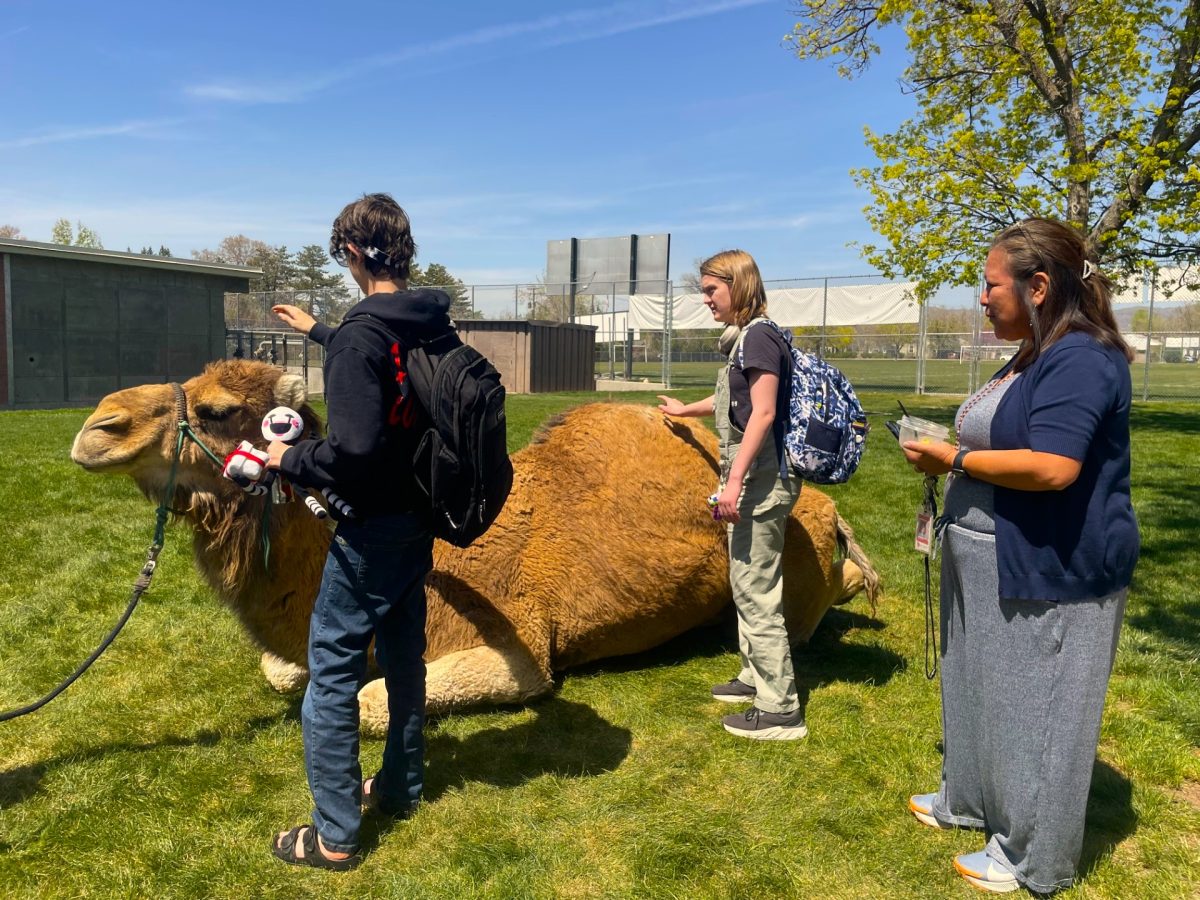
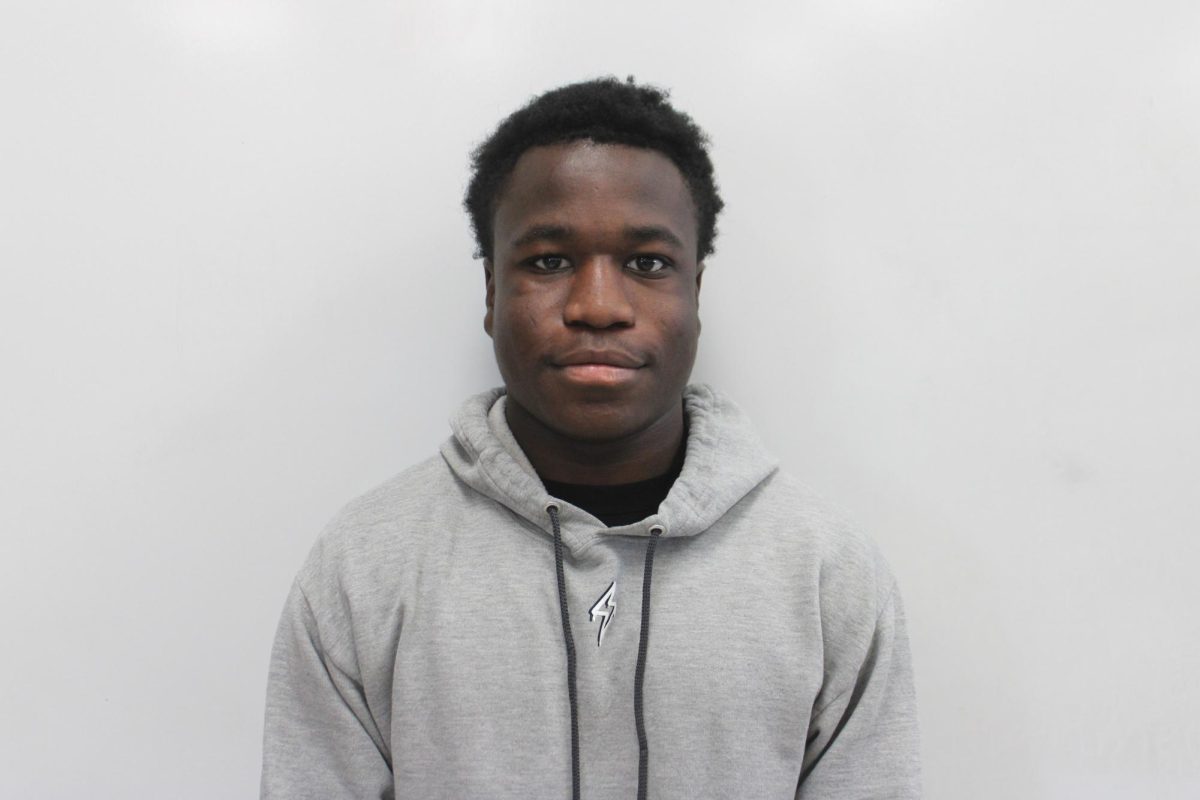

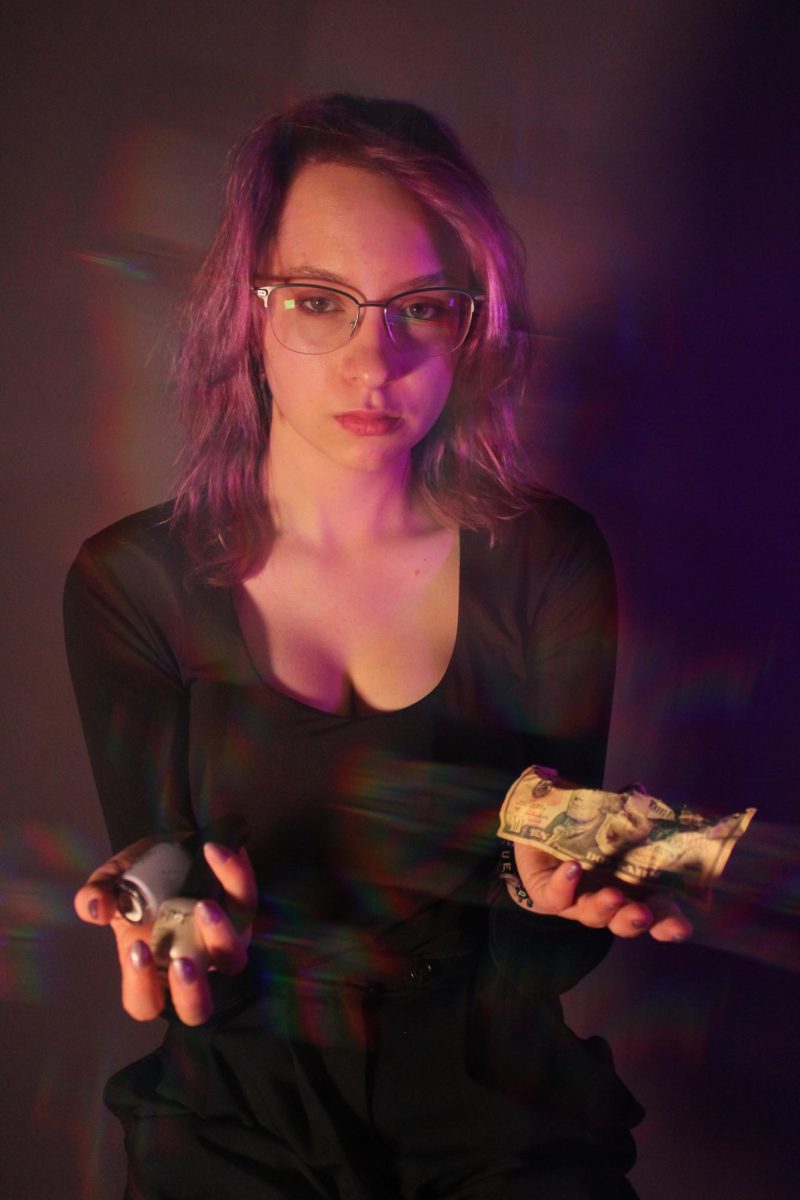

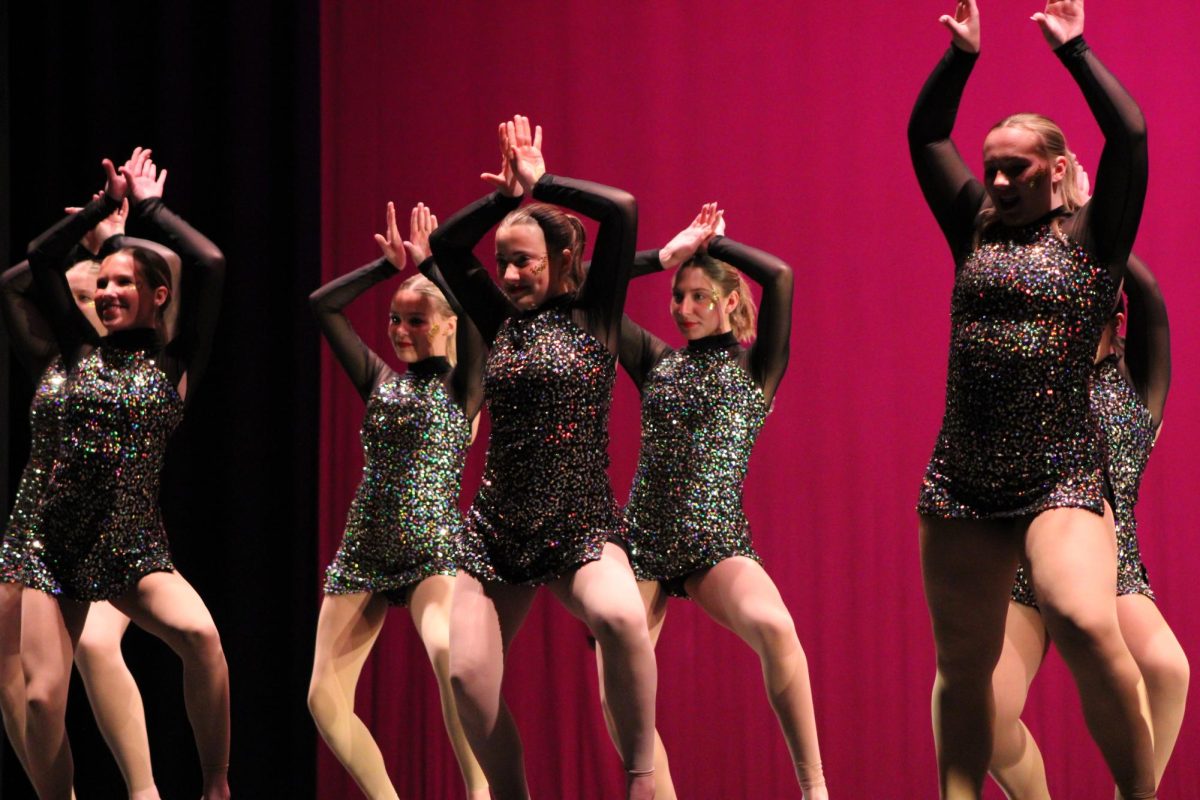



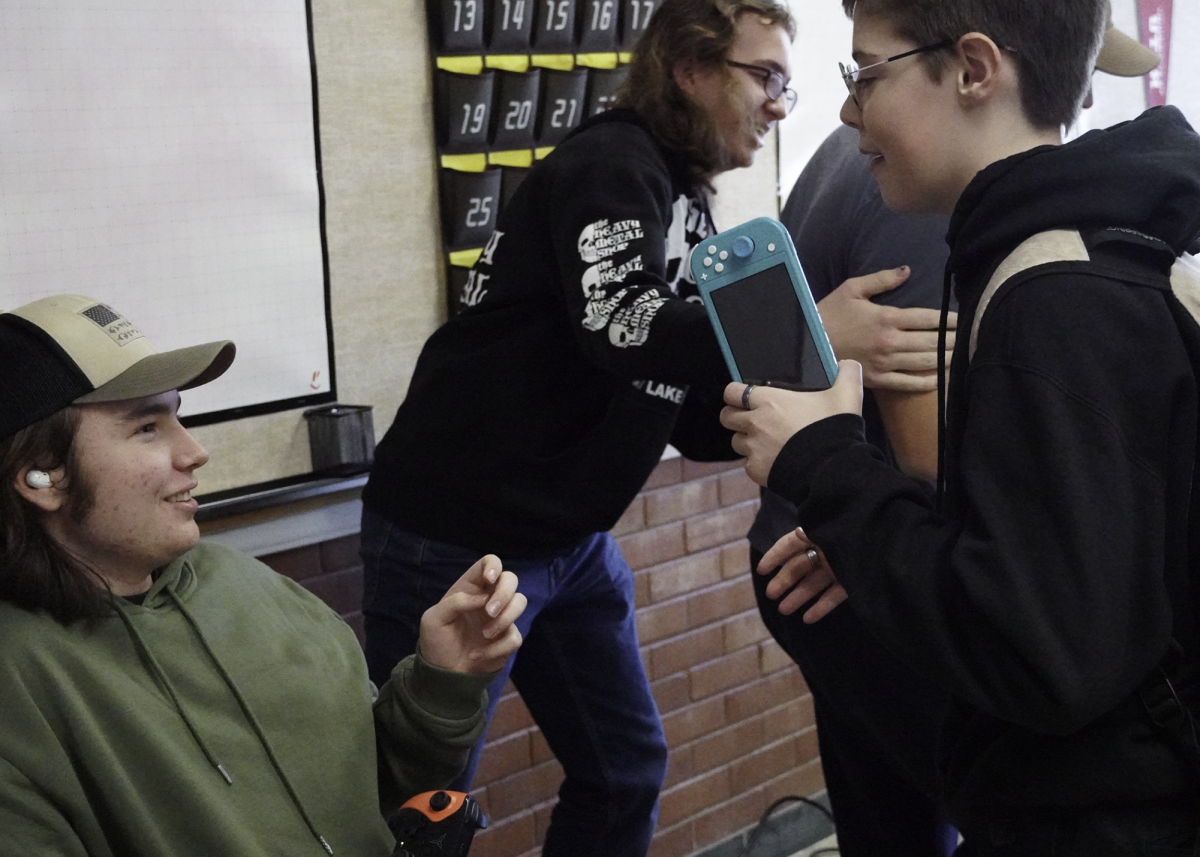








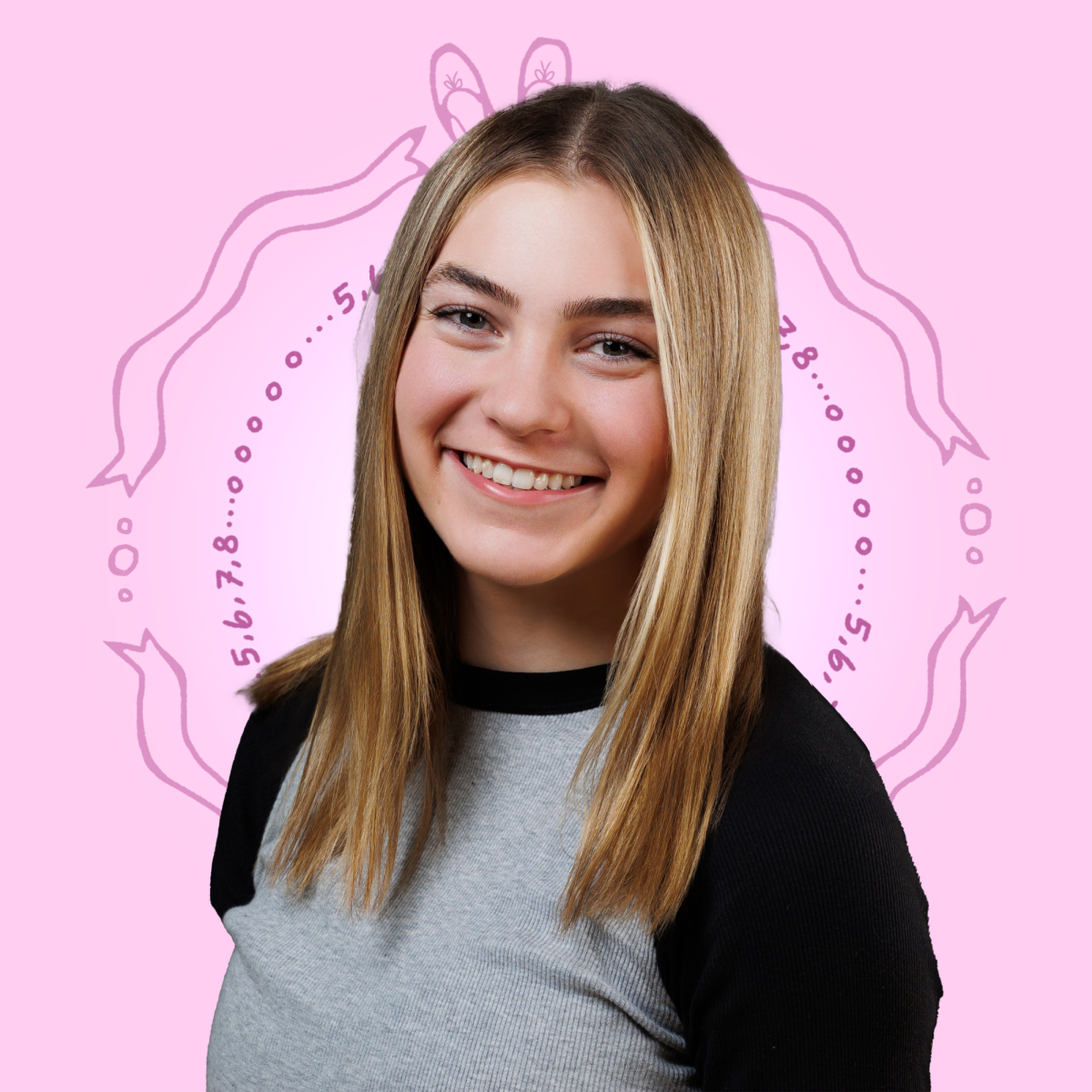







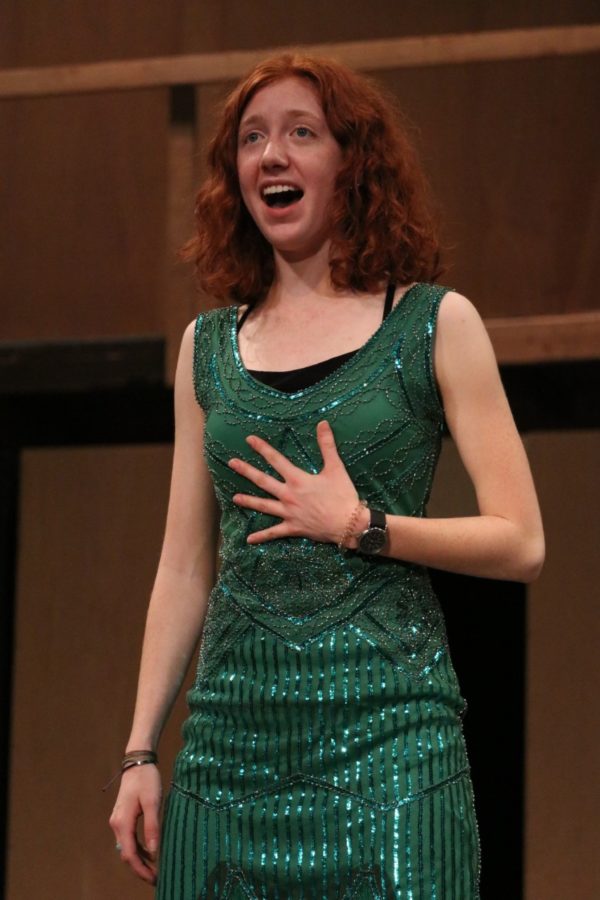
Jeanette Edwards • Nov 7, 2019 at 9:38 pm
The show was beautifully done. Bravo! To the cast and crew for all of their hard. Work. Best musical I’ve seen done by a high school this year.